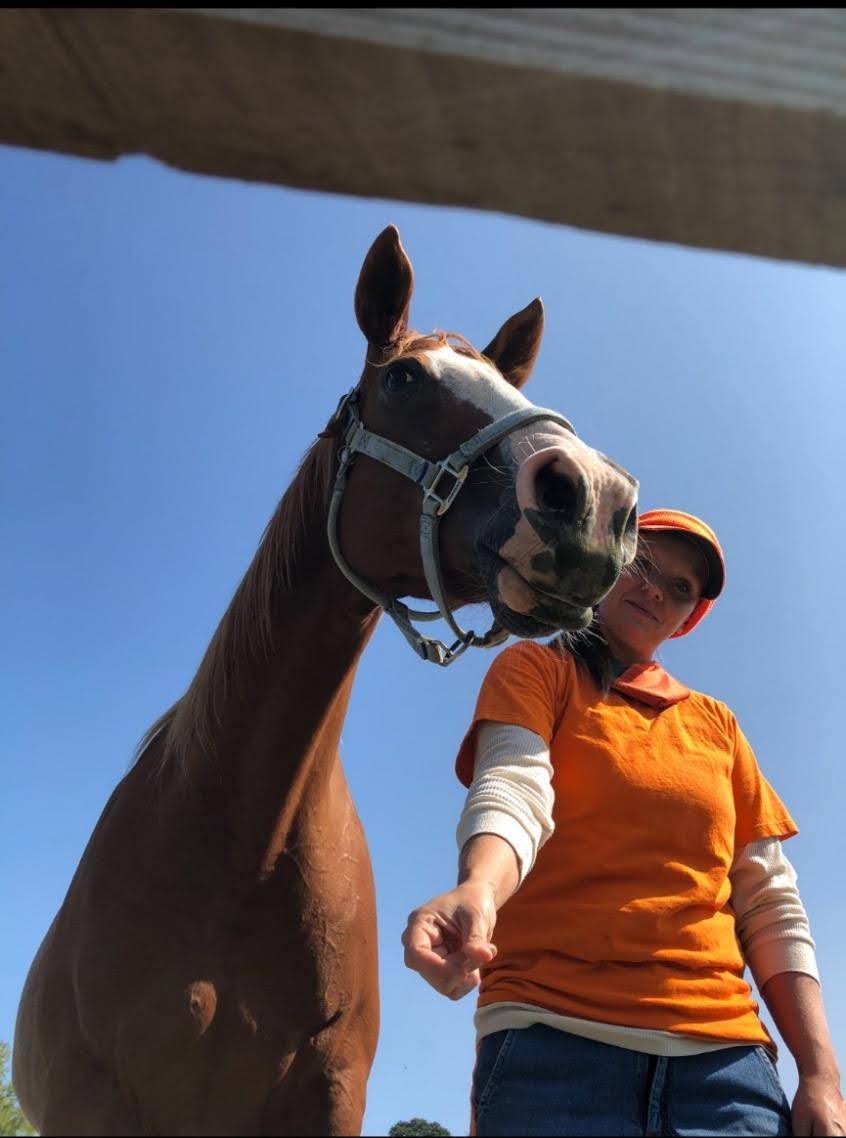
James River Horse Foundation
In addition to the safe and secure retirement of Wasabi Ventures horses, Wasabi Aftercare focuses on educating the public about the post-racing lives of Thoroughbreds in general. This month I am pleased to introduce everyone to the James River Horse Foundation. I spoke with Debby Dunham, President of their board.
WAF: Where is the James River Horse Foundation based?
JRHF: We are located at the Virginia Department of Corrections (VA DOC) State Farm Work Center in Goochland County, Virginia
WAF: How did your program begin?
JRHF: We started in 2007 as a local chapter of a national Thoroughbred rescue organization. In 2019, we reorganized as an independent 501(c)3 so all funds raised could be used for our program.
WAF: What makes James River unique?
JRHF: We have a public-private partnership with the VA DOC. We rescue former Thoroughbred racehorses from potential abuse, neglect, or slaughter and use them in an equine program for select female inmates. The women learn equine care and stable management skills, as well as soft skills such as teamwork, time management, critical thinking, crisis management, verbal and non-verbal communication, collaboration, mentoring. These are all skills they can use when they return to their families and communities. The horses, depending on their physical and mental health, can be rehabilitated and adopted out or have sanctuary for life in our program.
WAF: How big is the property where your horses are located? How many horses can you accept there?
JRHF: VA DOC has approx 3,000 acres of which we utilize approx 150 acres of pastures. We can have up to 30 horses at a time.
WAF: What happens when you accept a horse into your program?
JRHF: Horses that arrive at our barn are met with unconditional love from the female inmates in our program. After a short time in quarantine where we evaluate any physical injuries and emotional stressors, the new horse assimilates slowly into a herd we feel will be most supportive to any rehabilitation that needs to occur. We also evaluate the horse to see if it will eventually be eligible for adoption for a second career.
WAF: So, you have a mix of rehoming and sanctuary in your program.
JRHF: Depending on their injuries, they may be adopted out or stay in the program for life. Many horses have been adopted and gone on to do great things, such as eventing, hunting, dressage, pleasure riding, and pasture mates.
WAF: Let’s also talk about the human impact. How many people have gone through your program?
JRHF: Over 250 inmates have graduated from our program
WAF: Do you have a story about a horse and/or human that we can share with our readers?
JRHF: Becky came to the James River Horse Foundation horse program at the State Farm Work Center in Goochland, Virginia, in September of 2019. She was one year into an 8-year sentence, charged with fraud, taking money under false pretenses, and a litany of drug-related offenses, including failure to cooperate with police. Becky had spent the first several months of her incarceration in a state of bewilderment, struggling to accept her circumstance. She arrived at the horse barn with no prior experience with horses and immediately took to them. Hap’s Online (Happy) stole her heart. Happy could be temperamental and needed a confident and calm handler. Becky spent hours patiently and lovingly working through Happy’s quirks.
While building her knowledge of horses and honing her horsemanship, Becky found the quiet of the barn a place of reflection. Over the next four years, Becky became one of the strongest, most capable participants at the horse barn. She grew into a leader and mentor. By the end of her time at the horse barn, Becky said the program had helped her learn to set healthy boundaries, making her better able to stand up for herself and make good choices, treating herself and those in her life with understanding and patience. Becky was released early in 2024 and has launched into her returned life with confidence and purpose. Becky’s time at the horse barn turned her incarceration into an opportunity for growth and learning new skills instead of just serving time. And yes, one of the first things she did upon release was go ride a horse!
WAF: How does James River receive funding?
JRHF: We receive funding from private donations, sponsors, and grants.
WAF: If people want to help your program, what can they do?
JRHF: They can become a sponsor of a horse or the program, which includes a monthly sponsor day at the barn to interact with the horses and the inmates.
They can donate by visiting our website or sending a check to:
James River Horse Foundation
PO Box 346
Oilville, VA 23129
We have volunteer opportunities throughout the year but limited opportunities at the barn since it is part of the prison.
I am grateful to Debby for taking the time for this interview. If you want to learn about another aftercare ally, click here to read about Beyond the Wire.
